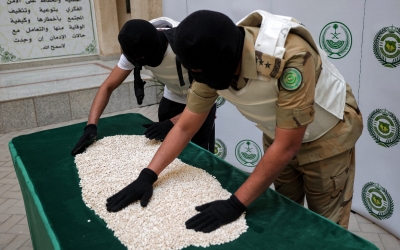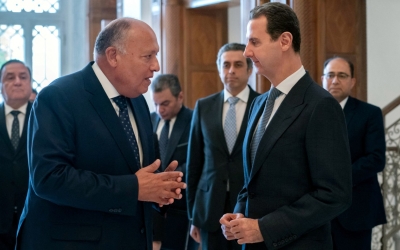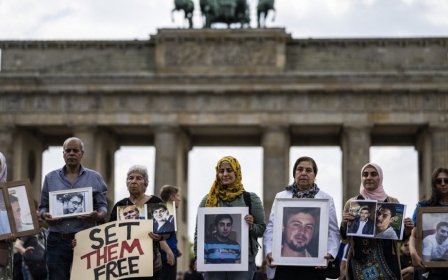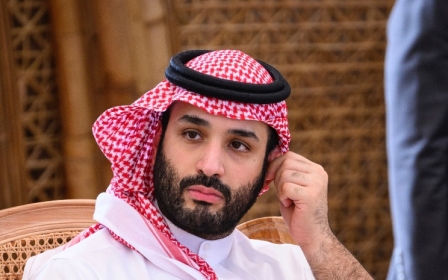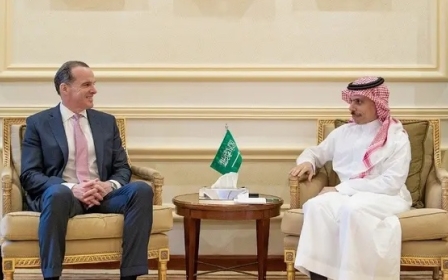Arab world must have 'leadership role' in ending Syrian civil war, say regional diplomats
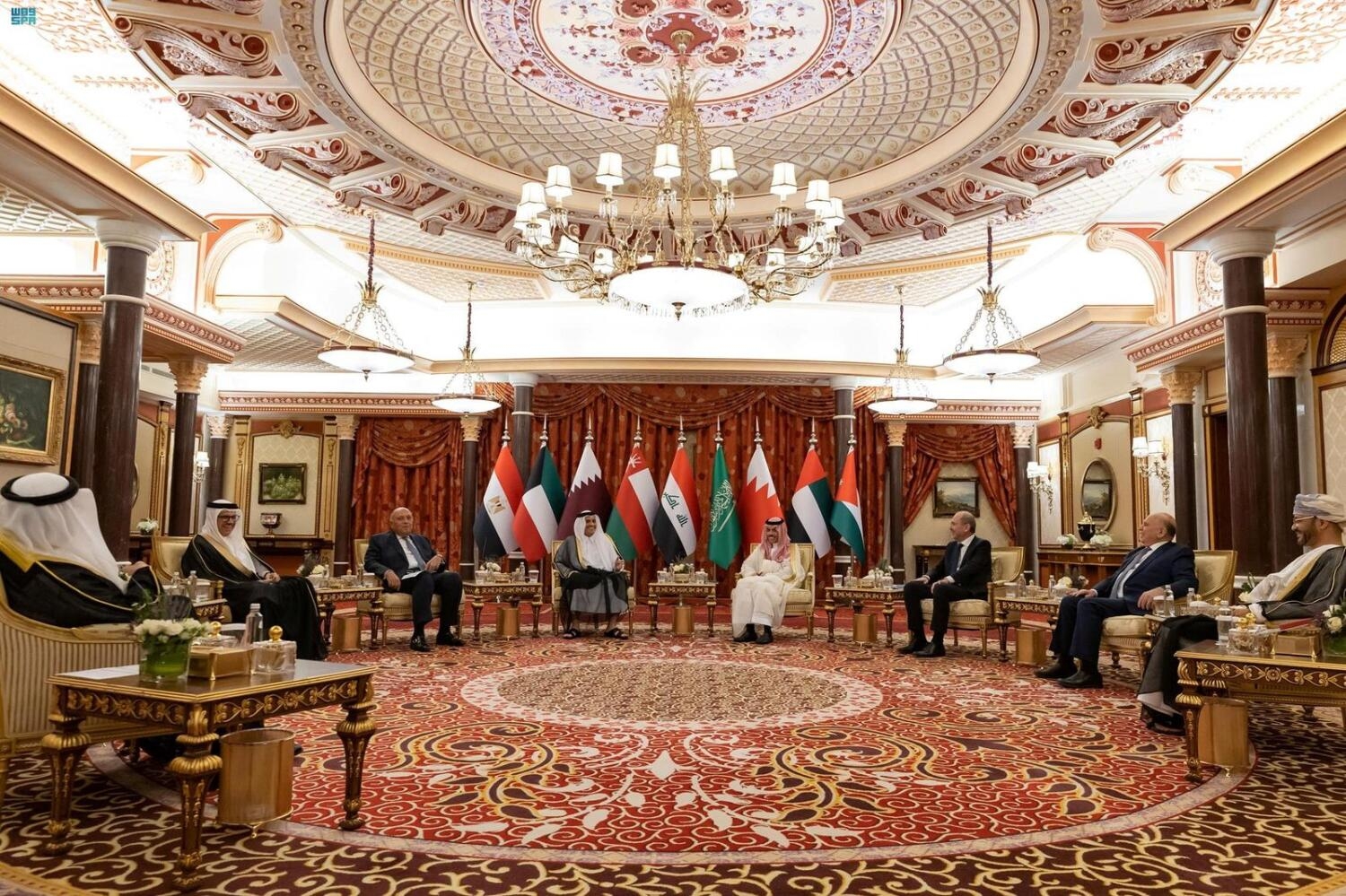
Diplomats meeting in Saudi Arabia agreed on Saturday that the Arab world must play a leading role in efforts to broker a solution to end Syria's war as the region seeks a path forward towards easing Damascus's regional isolation.
Top diplomats from the six Gulf Cooperation Council countries - Bahrain, Kuwait, Oman, Qatar, Saudi Arabia and the United Arab Emirates - plus Egypt, Iraq and Jordan met in Saudi Arabia at the kingdom's request.
The countries affirmed the "importance of having an Arab leadership role in efforts to end the crisis", according to a statement released by the Saudi foreign ministry early on Saturday.
They also discussed "the necessary mechanisms for this role" and agreed to intensify "consultations among Arab countries to ensure the success of these efforts".
Earlier this week, in the latest sign of an easing of tensions with Damascus, Syrian Foreign Minister Faisal Mekdad arrived in Jeddah, the first such visit since the war began.
New MEE newsletter: Jerusalem Dispatch
Sign up to get the latest insights and analysis on Israel-Palestine, alongside Turkey Unpacked and other MEE newsletters
One major hurdle to bringing Syria back into the fold is the trafficking of Captagon, an addictive amphetamine drug, to wealthier Gulf states.
The drug has emerged as the war-torn country's most valuable trade and a key source of income for the government of President Bashar al-Assad in Damascus.
Maher al-Assad, the brother of the Syrian president who heads the notorious fourth division of the Syrian Arab Army, is believed to control a vast Captagon trading network, along with Assad family members, according to investigations by news outlets including The New York Times.
Deep divisions
On Friday, a meeting of Arab foreign ministers ended without agreement on whether to readmit Syria back into the Arab League.
The lack of agreement on Syria underscores the continuing deep divisions between countries in the region almost 12 years after the country descended into a bloody civil war.
Syria was suspended from the Arab League in 2011 over Assad's crackdown on pro-democracy protests.
Saudi Arabia is facing pushback from some Arab states, including key allies, over plans to bring Assad in from the cold ahead of an Arab League summit that the kingdom will host in May.
At least five members of the Arab League - including Morocco, Kuwait, Qatar, and Yemen - have refused to readmit Syria into the group, the Wall Street Journal reported on Wednesday, citing Arab officials.
Even Egypt, traditionally one of Saudi Arabia's closest partners, has expressed reservations, the report said.
The WSJ article follows Middle East Eye's reporting that Egypt is privately moving slower on reconciliation with Syria than some of its public rhetoric has suggested.
A senior Arab Intelligence official previously told MEE that Cairo was wary of bringing Damascus back into the Arab fold over fears of US sanctions.
"Egypt is concerned about America's position on Assad. They don't move so fast," the official told MEE on condition of anonymity.
Egypt, for example, has been reluctant to agree to a deal to supply gas to Lebanon via Syria because of US sanctions.
Normalising relations
Some countries in the region are already moving towards normalising relations with Syria.
In recent months, Arab officials have started to travel to Syria once again, charting a path that could bring back Assad into the regional fold.
On 27 February, Egyptian Foreign Minister Sameh Shoukry arrived in Damascus on the first visit by a senior Egyptian official since the start of the Syrian uprising.
A day earlier, a delegation of Arab lawmakers led by Cairo's parliament speaker, Hanafy el-Gebali, visited Damascus and met Assad and other Syrian officials.
Emirati Foreign Minister Abdullah bin Zayed visited the Syrian capital and attended a meeting with Assad in January following a deadly earthquake that struck the country.
The Jordanian foreign minister, Ayman Safadi, also visited Damascus in February, the first such trip by a senior Jordanian official since the Syrian uprising began.
In February, Assad himself made only his second state visit since 2011, to Oman, a country which never broke ties with Damascus, where he was received by Sultan Haitham bin Tariq.
In March, Saudi Arabia agreed to restore ties with Iran, one of Assad's main backers, in a deal brokered by China.
A few weeks later, the kingdom corralled fellow Opec states to make "voluntary" cuts in their oil production that could remove one million barrels of crude a day from the global market.
Middle East Eye delivers independent and unrivalled coverage and analysis of the Middle East, North Africa and beyond. To learn more about republishing this content and the associated fees, please fill out this form. More about MEE can be found here.


